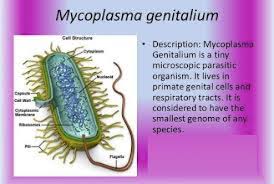What You Should Know About Mycoplasma Genitalium
More young people in the United States are becoming infected with Mycoplasma genitalium, a type of STD caused by the said bacterium. In fact, in the year 2007, it ranked as the third most common STD among US citizens, surpassing gonorrhea.
Mycoplasma genitalium is the main causes of nongonococcal urethritis (NGU) in men, and is commonly associated with bacterial vaginosis (vaginitis) in women.

If mycoplasma genitalium is left untreated, it may cause infertility (as a result of PID), cervicitis and urethritis. It has been associated with cystitis and also the development of pelvic inflammatory disease (PID) in women.
The mycoplasma genitalium bacteria are frequently found alongside other sexually transmitted infections, such as gonorrhea and chlamydia. Similarly to those infections, it is easily treatable, but many people fail to seek treatment, as the bacteria doesn’t always cause obvious symptoms.
The bacterium Mycoplasma genitalium (MG) is sexually transmitted and can cause inflammation of the urinary and genital tracts in men and women. This germ may also be linked to other problems, including some cases of arthritis and, in women, pelvic inflammatory disease and infertility.
MG appears to be spread by unprotected anal or vaginal intercourse, as it can be detected in fluid samples from the penis, rectum and vagina. So far it has not been detected in fluid samples from the throat.
MG, like other sexually transmitted infections (STIs), can cause inflammation of delicate genital tissue. Such inflammation can make the genitals more susceptible to infection with other STIs, including HIV.
In high-income countries, overall rates of MG infection appear to be low, ranging between 1% and 3%. Several studies have found that rates of MG infection tend to be greater among people who seek care for STIs.
Symptoms For Mycoplasma Genitalium
Symptoms of urethritis in men can include one or more of the following:
- pain during intercourse or on ejaculation
- discharge from the penis
- frequent urination or the feeling of having to urinate frequently
- a burning sensation while urinating
Symptoms of cervicitis and urethritis in women can include one or more of the following:
- pain during intercourse
- a burning sensation while urinating
- discharge from the vagina
- abnormal vaginal bleeding — after intercourse, after menopause, between periods
- abdominal pain
- vaginal pain
- frequent urination or the feeling of having to urinate frequently
Treatment For Mycoplasma Genitalium
Your doctor might try azithromycin (Zithromax, Zmax) first. If that doesn’t work, your doctor might give you moxifloxacin (Avelox).
MG can be a tricky problem to treat. Common antibiotics like penicillin kill bacteria by damaging a germ’s cell walls. But MG bacteria don’t have cell walls, so these drugs don’t work very well.
